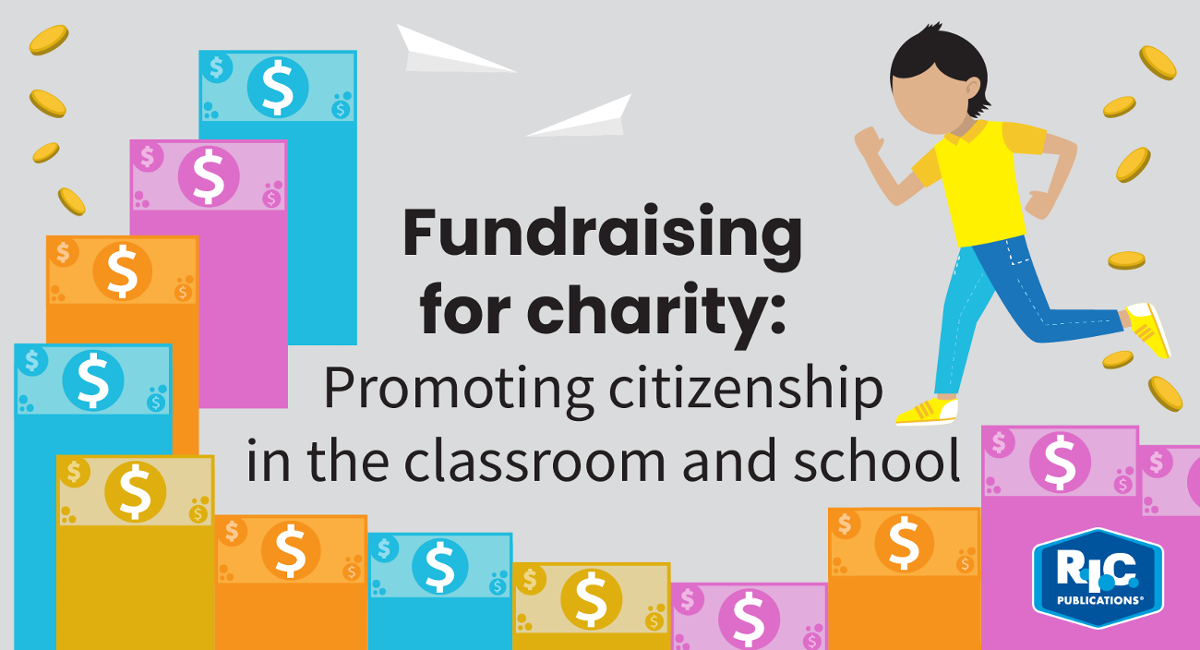- Wednesday 26 February 2020
- 0 Comments
From the ages of five to nine, children begin to develop a greater sense of themselves not only as individuals, but also of how they relate to others and of being responsible, being good and doing the ‘right’ things. They also develop an understanding of not only what is occurring in their immediate lives, but of what is happening in their wider community and even events on a worldwide scale. This can be further developed by including in your class a daily routine of students discussing things that are happening outside of their immediate domain, such as putting aside five minutes at the start of the day as time for students to mention any news or events that they have heard about over the last 24 hours. While there is no need to go into any real analysis of these events with the students, just making them aware of what is happening in their community is important.
As students begin to acknowledge the world outside, the hope is that they will develop a sense of empathy for those who are in a ‘bad situation’. This is especially true of times when there have been catastrophic events that dominate the media, such as bushfires and other natural disasters. Even young children can relate, to some extent, to how they would feel if they had no toys, few clothes, no home or were hungry. This is also true of how children understand the various special days that occur throughout the year to bring to people’s attention a certain community issue or health problem, such as Red Nose Day for SIDS or Clean Up Australia Day. It need not all be ‘bad’, as students can be made aware of positive and happy events that are occurring in the community, such as a local sports team performing well.
Making your students more socially aware can be an impetus for positive change, with them realising that they too can help in their own way. It can instil in the children a sense of community and responsibility … hopefully values that they will hold for the rest of their lives.
Holding a fundraiser for a charity or a local community group is one way you can promote positive citizenship in your students. It does not need to be a difficult task; indeed, providing a simple and fun way to raise money for an appropriate charity encourages the students to feel good about themselves, knowing that they are ‘helping out’ a little bit. Use some of the following ideas to raise money for a local sporting or social club, or local or worldwide charity … and let the children have fun as well!
Kids only
- Each class elects to create art of craft items, such as wind chimes, pottery, gifts etc., to sell to other children or parents.
- Students bring loose change to place side-by-side in a line to try to create a ‘kilometre of coins’. The coins are then donated.
- Students purchase a sheet of word puzzles about local place names or words for $2. The first all-correct entry drawn out of a barrel wins a prize. The children could collect the sheets on a Friday, with the draw held on a Monday. This develops students’ spelling and thinking skills, and their awareness of the local community.
- Students pot cuttings or seedlings of plants to sell. Donations of cuttings could be requested of parents or other community members.
- In conjunction with a class theme about the senses or communication, the children collect sponsors for a ‘Keep Silent Day’: children must devise ways to communicate with the teacher and other students in the classroom during the day without using speech.
Parents, teachers and kids
- Request parents donate a favourite recipe or two for a class or school cookbook. A number of parents could help collate, type and print the recipes. Once compiled, the books can be sold.
- Lower and middle primary students pay to watch teachers compete against senior students in a sporting competition, play, musical or fashion parade.
- Hold a car boot or trash-and-treasure sale in the school’s car park or grounds. Parents pay to park in a bay to sell items.
Other easy-to-do community-minded activities for kids
- Sponsor an animal. Students can study the animal’s species as a project or correspond with its keeper.
- As a class, visit or start correspondence with elderly or special needs people. Organise to visit a local aged-care facility. Students could perform a song or short play for their audience or listen to a talk presented by a resident of the facility about a given topic. Also, students could write short letters for or send drawings to residents, who can then respond penpal-style.
- As a class, visit a local park, beach or other shared area and participate in the clean up or maintenance of it. Also, students could help with an organised planting of trees and get their hands dirty for the sake of the community.
Useful websites
The following websites may provide useful tips and ideas for fundraising:
And don't forget to check out our Civics and Citizenship category for great teaching resources on this key area of Humanities and Social Sciences.
